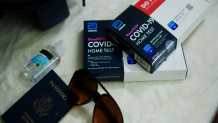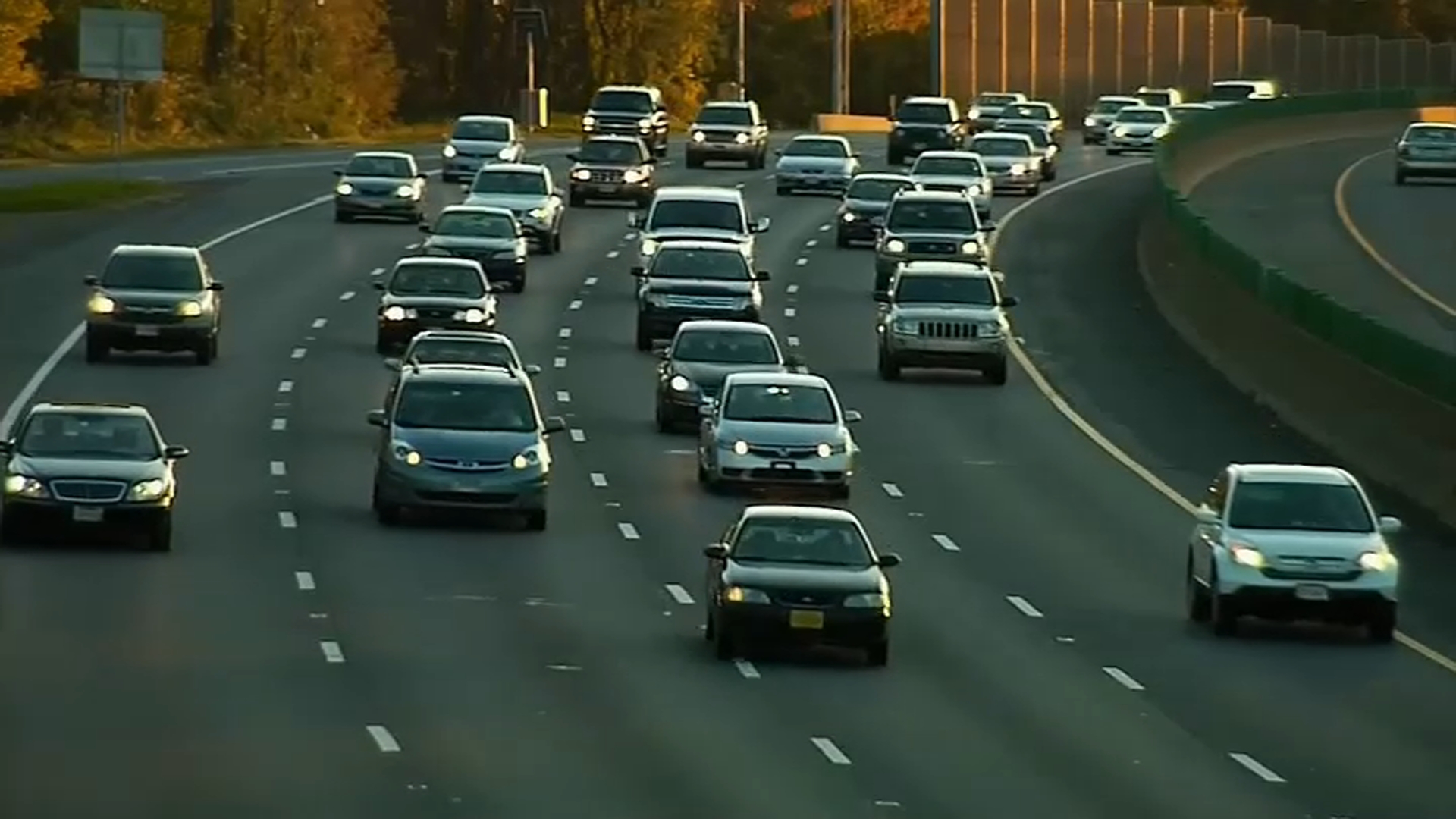After months of living in a raging pandemic -- forcing families to conform to safety requirements and hunker down in their homes -- people could use a vacation.
If you're planning on hitting the skies and traveling internationally this year, there's one thing you'll need to have before you return home to the U.S.: a negative COVID-19 test result.
The U.S. Centers for Disease Control and Prevention requires international travelers to have a COVID-19 test within three days of returning back to the U.S., even if they're vaccinated.
If you don't have a plan before departing, the requirement can be costly and take time to find rapid results abroad last-minute.
Plan Ahead Before Departure
Luckily for Nicole Hammond and her family of five, she planned ahead for this requirement before a vacation out of the country this past spring
"I'm a planner and having three kids under the age of five, I definitely err on the side of mitigating any risk I can," Hammond said.
Local
Hammond said her family had their eyes set on Cabo San Lucas, Mexico after positive reviews from her friends who traveled there. In mapping out her family's trip, Hammond discovered the new reality of COVID-19 testing requirements before visiting another country.
Depending on where you're traveling, each country has its own testing requirements to enter. In fact, some countries have no testing rules to enter while others are very strict.
Most airlines are taking the extra step of informing passengers beforehand of the testing requirements for their destination.
Feeling out of the loop? We'll catch you up on the Chicago news you need to know. Sign up for the weekly> Chicago Catch-Up newsletter.
Another way to find out ahead of time is the International Air Transport Association’s map online that is updated regularly and shows the requirements in order to enter each country. Click here to see the map.
No matter what the requirements are to enter another country, you'll need a negative COVID-19 test result or documentation of your recovery to return back to the U.S.
The CDC requires all international travelers ages two and older to have a negative COVID-19 test result or recovery documentation produced within three days of the date of return to the U.S.
The rule applies even if vaccinated, according to CDC guidelines.
"Airlines must refuse to board anyone who does not present a negative test result for COVID-19 or documentation of recovery," the CDC website reads.
For Hammond and her trip to Mexico, she said she was surprised to learn that the only testing rules in place were for coming back home to the U.S.
"I was surprised that there was no need to test to enter the country [Mexico], but only to exit because I've heard discrepancies based on where you're going as to what they require," Hammond said.
But as Hammond soon found out, some testing companies can charge hundreds of dollars to provide rapid results from COVID-19 tests in time for a departing flight.
There are alternatives, but those require planning ahead as well as some important caveats.
Bringing A Self-Test When You Travel
Another option of which the CDC approved is to use a self-administered test that can be purchased in the U.S. and brought along on travels.
However, this option comes with its own rules.
The CDC requires travelers to use an antigen test that comes with a telehealth appointment where a proctor or guide witnesses the individual administering the test correctly.
NBC 5 Responds found at this time that there’s only one test that meets those requirements: the BinaxNow COVID-19 Home Test by Chicago-based Abbott Labs and eMed.
This test is not to be confused with the BinaxNow test that is already on store shelves. Rather, this one is only available for order online in most states. The test is also available in some stores in New York and California, the company’s website states. A prescription is not necessary to purchase the test.

While the BinaxNow Home test is the only option approved for international travel for now, more tests are expected to be approved and available over-the-counter this summer, a CDC spokesperson said.
Dr. Patrice Harris, CEO and founder of the company eMed, explained that these home tests are different from the infamously long swab most people are used to.
“This is an anterior nasal swab,” Harris explained. “I know some folks might remember the swabs where you have to go a little deeper into the nose but this is an anterior swab.”
Harris said the purchase of this type of home test comes with a telehealth appointment with a guide or proctor to observe the testing procedure, which is meant to leave little room for error.
“So, the person would swab each of their nostrils and place the swab in the card, close the card, and wait 15 minutes for the result,” Harris said. “One line is negative. Two lines are positive. It’s just that simple.”
The Hammond family lucked out: the Cabo San Lucas resort her family stayed at provided rapid testing on site, they said. Even if you have testing in-person, though, there are some important points to keep in mind to prevent any problems down the road.
If You Can, Have Hard Copies Of Your Test Results
Hammond said the price of the testing on-site at the Cabo San Lucas resort put a smile on her face: $20 per person, she said.
That was welcome news, after the family said they had heard from friends who had paid much more.
"I've heard numbers for Hawaii that are like $100," Hammond said. "So, $20 per person wasn't bad."
The Hammond family's return home went pretty smoothly. Hammond said the only hitch she experienced was some trouble sharing her negative test results using an app on her phone. But luckily, the resort had printed out hard copies of the test results, and she said she was able to use those when boarding her returning flight home.
It was a good reminder to always have a backup plan, Hammond said.
"My advice to other families is to plan ahead: do your due diligence to understand where you're going, and what the protocols are," Hammond said.
Hammond also recommends verifying which test you're taking and check that it's the proper COVID-19 test the CDC requires to board your flight home. Apps like VeriFly will share with users the requirements based on the country they're visiting and will assist with sharing the test results with airline staff.
The Hammond family's vacation went smoothly, and they booked another trip for Mexico this fall. After many months of keeping her family indoors, Hammond said these trips are beneficial for the family and support businesses internationally.
"In hospitality, supporting businesses is important for our country and for the globe,” Hammond said. “I would encourage people to start looking at traveling."



